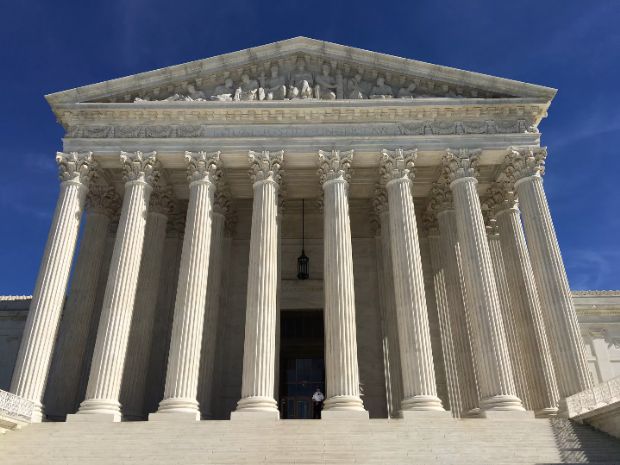
In a decade-long Java copyright lawsuit, Google overturned the game again, winning the most.
On the 5th (local time), the US Supreme Court ruled in a 6-2 Google victory in a Java copyright lawsuit, CNBC and other major foreign media reported simultaneously.
This lawsuit, which began in 2010 and continued an unprecedented reversal, ended with Google’s victory.
■ Java API copyright is recognized, but no separate judgment is made
This lawsuit was triggered by Google’s use of Java developed by Sun Microsystems while developing Android. Oracle, which acquired Sun in 2010, immediately sued Google, and the Java War of the Century began.
There were two main issues in the lawsuit.
first. Can Java APIs also recognize copyright?
second. (In the case of acknowledging the Java API copyright) Is Google’s actions considered’fair use’?
The Supreme Court decided that copyrights could be recognized even for Java APIs. However, he ruled that Google’s use of the Java API on Android was considered’fair use’ and that it could not admit Google’s copyright infringement.
“Google used some of the Sun Java APIs to create a new platform,” said Supreme Court Justice Stephen Briar, who wrote the ruling on behalf of the majority of opinions.

The Supreme Court acknowledged the copyright of the Java API code, but did not make a formal ruling on that part.
In response, Supreme Court Justice Briar explained in the ruling that “Google’s fair use of Java code was sufficient to judge this case.” He also “Given the rapidly changing technological, economic and business environment, we believed there was no need to respond more than necessary to resolve the conflicting situation on both sides.”
In this lawsuit, Supreme Court Justice Briar and Chief Justice John Roberts, who wrote the ruling, as well as Supreme Court Justices Sonia Sotomayor, Elena Kagan, Neil Gosearch, and Brett Cabano participated in the ruling in Google’s victory.
Justice Clarence Thomas and Justice Samuel Alyto disagree.

Justice Amy Connie Barrett did not participate in the ballot because he had not been approved by the Senate at the time of oral defense between Google and Oracle in October.
“The Supreme Court gave the wrong answer to the most important question about whether Java code can be copyrighted,” wrote Supreme Court Justice Thomas, who disagreed. “I believe Java code has copyright.”
Google’s lawyer, former Supreme Court Justice Tom Goldstein, argued that “the long practice of reusing software interfaces is important to the development of modern software,” at the time of the Supreme Court’s oral defense.
■ Started with Oracle filing in 2010… Google’s Dramatic Reversal Wins After Losing Appeal
The Java lawsuit between the two companies, which began in 2010, has been a fierce battle with unprecedented reversals.
The first gun was opened by Oracle. Oracle, which acquired Sun Microsystems, the maker of Java in 2009, filed a copyright infringement lawsuit against Google shortly after the following year.
In this lawsuit, Oracle alleges that Google has stolen 37 Java APIs while creating the Android operating system (OS).

The first trial court did not recognize the copyright of the API. Judge William Allsup, who had experience with programming, decided that “(API) is a long command hierarchy to perform a predefined function,” and that “therefore, it is not subject to copyright protection.”
The majority of Silicon Valley programmers agree. The same goes for civic groups, including the Electronic Frontier Foundation (EEF).
Then Oracle immediately appealed. The appellate court overturned the first trial decision. He ruled that “Java API is also subject to copyright protection”. However, the Court of Appeal has imposed one condition of probation. The case was returned to the first trial court, asking us to reconsider whether the copyright infringement of Java API is considered fair use.
Here, the lawsuit was divided into two categories: ▲copyright infringement and ▲fair use.
Google filed an appeal with the Federal Supreme Court on the copyright infringement section of the appeal court ruling. However, the Supreme Court did not accept the appeal.

The question is whether Google’s use of the Java API falls under the copyright law for fair use. If fair use is recognized, we are not obligated to compensate for copyright infringement.
Here, Google again wrote an anti-war drama.
San Francisco’s support for the Northern District Court of California, who was in charge of remandation of destruction, ruled in May 2016 that “Google’s use of Java API is fair use under copyright law.”
Related Articles

Google and Oracle win the final battle of the’Java War’ in the US Supreme Court

Google and Oracle gathered allies for the’Java War’ through a volume offensive

Google and Oracle’Java War’ final game is finally held

How is the Java War pushed by Corona 19?
However, the case of fair use was reversed again in the court of appeals. In March 2018, the Court of Appeals accepted Oracle’s appeal, saying, “Google’s use of the Java API cannot be recognized as fair use.”
Then, this time, Google filed an appeal to the Federal Supreme Court. When the Supreme Court accepted the request, the final battle of the Java War of the century unfolded.
